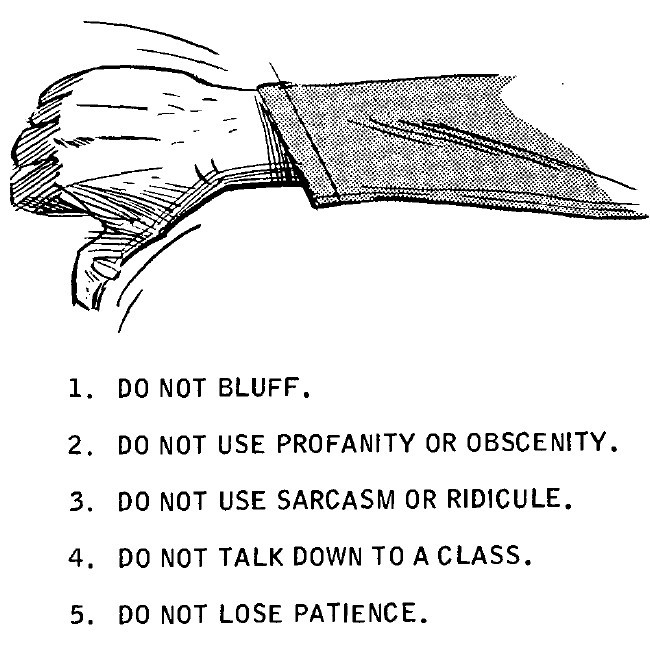One advantage of being in the late years of my firefighting career is that I have accumulated a significant collection of printed and electronic firefighting resource materials. However, there is a limit to the usefulness of these materials, especially the older examples. I recently decided it was time to sort through my collection, which leads to this commentary. I have always been attracted to the military and the parallels that can be drawn with firefighting, so it was no surprise when I rediscovered a PDF that I had downloaded in the distant past entitled "Techniques of Military Instruction." Field Manual 21-6 was dated 20 January 1967 and superseded the previous document dated 19 May 1954.
I casually cruised through the 230-page manual (https://www.bits.de/NRANEU/others/amd-us-archive/FM21-6%2867%29.pdf), expecting to delete it after giving it a quick look. What I found, however, was that I kept slowing down and taking note of useful content. It was then that I realized that as much as things may change, the basic elements stand the test of time. Undoubtedly, the authors of the now 54-year-old manual would never have imagined that it would still be useful during the pandemic, electronic meeting, and technology-driven world we now find ourselves living within. The point that can be made is that at the end of the day, instructing still requires a positive, skilled connection between the instructor and student. I thought I would attempt here to describe a few examples from the manual.
Characteristics of a good instructor

Figure 1 displays the characteristics of a good instructor.
The five listed attributes of Leadership Ability, Professional Attitude, Knowledge of the Subject, Positive Personality, and Knowledge of Teaching Techniques all still apply today as much as ever. While basic in the description, these characteristics all describe who the instructor is as a person as much as they describe their ability to teach. I found it interesting that field experience, years of service, and rank were not on the list. Admittedly, they all have their place as well but are not absolute limiting factors of a good instructor. The temperament and the capacity to deliver information and skill to another individual are more important than the reputation or resume the instructor walks in the door with.
Instructor Improvement
The Army manual provides a fine description of the necessity to continually develop as an instructor; "The fact that an instructor has taught for some time does not mean that he has made significant improvement, nor does the fact that an instructor is rated superior this year means that he will be superior next year." According to the manual, instructors should:
- Know what makes good instruction.
- Observe other instructors.
- Analyze your characteristics.
- Concentrate on specific elements.
- Seek the help of associates.
- Make a constant effort to improve.
Developing a good relationship with students
A good relationship with students is predicated on respect given and respect received by the parties involved. One notable line from the manual was of particular interest. Remember, this manual was from 1967. “He (the instructor) respects the personality of each student, regardless of racial, geographical, or intellectual grouping.” The Military and the Fire Service long ago realized that there is no place for inequity in groups whose primary function is to be their very best during life-or-death situations.
Advice to Instructors
The graphic provides an efficient summary of the advice provided to instructors. Simplistic in nature, but entirely appropriate.

Final Thoughts
Without a doubt, the modern fire instructor has changed and evolved over the last fifty years. However, there still exist many basic elements that we can still learn from today that were established before many of us donned our first set of gear. One final quote from the manual that I would like to share is possibly my favorite: “It is not so much what the instructor does or says that teaches, but rather what he causes his/her students to do.” I feel the true essence of skilled instructors to be that they inspire in others the passion to become the best version of themselves within their profession.